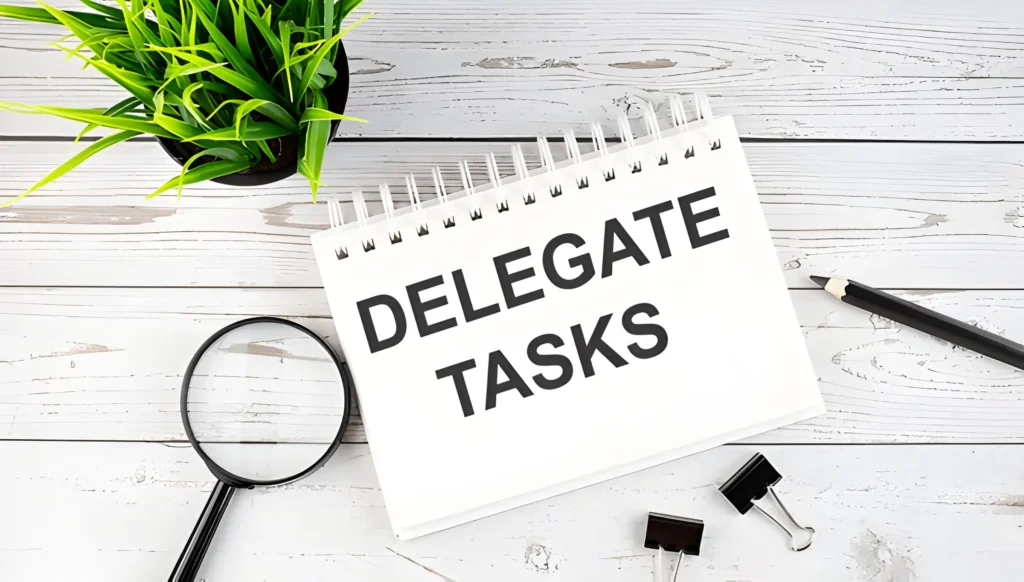Balancing family life and work is one of the most significant challenges people face today. With the fast pace of modern life, it can often seem like there is never enough time to juggle all your professional obligations and maintain a healthy, joyful family life. However, with some thoughtful strategies, it’s possible to find joy and fulfillment in both areas. This article will guide you through 12 simple tips for joyfully balancing family life and work, helping you to create harmony between your home and professional responsibilities.
Tip 1: Set Clear Priorities for Balancing Family Life and Work

One of the first steps to joyfully balancing family life and work is understanding your core priorities. Often, the overwhelming feeling of trying to manage both work and family comes from not being clear on what truly matters. Do you value career advancement more, or do you want to spend more time with your family? Your answer will guide you in making decisions.
Create a list of your priorities in both your work and family life. This can include professional goals, but it should also reflect personal commitments like attending your children’s school events or having family dinners. By identifying what’s most important, you can make more intentional choices about how you allocate your time, ensuring that you’re spending it in ways that align with your values. Prioritizing helps you make conscious decisions about how you approach balancing family life and work.
Tip 2: Create and Respect Boundaries

A critical aspect of balancing family life and work is establishing clear boundaries. Without them, it’s easy to let work tasks seep into family time and vice versa. One of the most common struggles is answering work emails or phone calls during family time, or being preoccupied with family issues while at work.
Start by setting work hours and sticking to them. If you work from home, create a dedicated workspace where you can focus without distractions. Communicate with your family about your working hours so they understand when you’re unavailable. Equally, once your workday ends, put away your laptop and focus on your family. No more work emails during dinner! This boundary helps ensure that when you’re at home, you’re fully present with your loved ones.
Similarly, let your colleagues know when you’re not available for work matters because of family commitments. It’s important to communicate openly and assertively about your boundaries. Establishing and maintaining these boundaries is key to effectively balancing family life and work.
Tip 3: Embrace Flexibility to Enhance Balance

While structure is important, flexibility is equally crucial in balancing family life and work. No matter how carefully you plan your day, unexpected events are bound to happen—whether it’s a family emergency or a last-minute meeting at work.
Having a flexible mindset helps you deal with these situations without feeling stressed or guilty. For example, if you need to attend a school event for your child in the middle of the workday, adjust your schedule so you can complete your tasks later in the evening or early the next morning. Being flexible ensures that you can meet both your family and work obligations without sacrificing one for the other.
Additionally, flexibility allows you to adapt to changes that might arise in your work schedule. Some days you might have to focus more on work, while other days you’ll need to dedicate more time to your family. Being adaptable is essential for maintaining a healthy balance between the two.
Tip 4: Delegate Responsibilities

A common mistake people make when trying to balance family life and work is thinking they need to handle everything themselves. However, delegation is a powerful tool for achieving balance. Whether at home or at work, you don’t need to do everything on your own.
At work, learn to delegate tasks to colleagues or subordinates. Trust your team to handle responsibilities that don’t require your direct involvement, freeing you up to focus on more strategic tasks or to finish work earlier, giving you more time for your family. Letting go of control can be challenging, but it’s a necessary step to avoid burnout and ensure you’re balancing family life and work effectively.
At home, involve your partner or older children in household chores. Children can help with age-appropriate tasks, such as setting the table, cleaning their rooms, or feeding pets. This not only lightens your load but also teaches your children responsibility and teamwork.
Tip 5: Plan and Use Time Management Tools

Time management is the backbone of successful balancing family life and work. Using tools such as digital calendars, planners, or productivity apps can help you stay organized and ensure that both your work and family obligations are met.
Start by creating a schedule that blocks out time for work and family. This includes not only your work hours but also dedicated family time, such as meals, outings, or game nights. Many successful people use time-blocking techniques to ensure that they are devoting sufficient time to both work and family life.
Apps like Google Calendar, Trello, or Asana can help you track deadlines, meetings, and family events, allowing you to visualize your day and prevent any scheduling conflicts. By planning ahead, you ensure that nothing falls through the cracks, making balancing family life and work much smoother.
Tip 6: Prioritize Self-Care to Maintain Balance
When trying to balance family life and work, it’s easy to overlook self-care. But remember, if you’re not taking care of yourself, you won’t have the energy to give your best at work or at home. Self-care is not a luxury; it’s a necessity for maintaining balance.
Make time for regular physical activity, eat a healthy diet, and get enough sleep. These are the basics of self-care, but they’re often the first things we neglect when trying to manage our busy schedules. Taking care of your mental health is just as important. Whether it’s through meditation, journaling, or simply taking time for yourself, self-care helps you recharge and be more present in both your work and family life.
Incorporating self-care into your daily routine will give you the energy and mental clarity needed to successfully balance family life and work.
Tip 7: Practice Mindfulness
Mindfulness can be a powerful tool in helping you stay present and engaged, whether at work or with your family. Mindfulness involves focusing your attention on the present moment and fully engaging with whatever you’re doing.
When you’re at work, mindfulness helps you focus on the task at hand without being distracted by thoughts of what’s happening at home. Likewise, when you’re with your family, practicing mindfulness helps you fully enjoy those moments without worrying about work tasks. Mindfulness reduces stress and increases your ability to effectively balance family life and work.
Simple mindfulness exercises, such as deep breathing or meditation, can help you stay centered and calm throughout the day. Practicing mindfulness improves the quality of both your work and personal life, making it easier to achieve harmony between the two.
Tip 8: Focus on Quality Over Quantity
When it comes to balancing family life and work, the quality of the time you spend in each area is often more important than the quantity. You might not always be able to spend as much time with your family as you would like, but if you make the time you do spend with them meaningful, it can make a big difference.
For instance, instead of being distracted by work during family meals or outings, put your phone away and be fully present. Listen actively to what your family members are saying, and engage with them meaningfully. These small moments of genuine connection are what build strong family bonds.
The same applies at work. Focus on being productive during your work hours so that you can complete tasks efficiently and leave work at the office (or close your laptop if you work from home). Quality time, both at work and with your family, ensures that you’re fulfilling your responsibilities without feeling torn between the two.
Tip 9: Learn to Say No
Saying no is one of the hardest yet most important strategies for balancing family life and work. Overcommitting, whether at work or in your personal life, can lead to stress, burnout, and dissatisfaction in both areas. It’s crucial to know your limits and recognize when to say no.
At work, this might mean declining additional projects or meetings that don’t align with your priorities. Politely but firmly saying no helps you protect your time and focus on what’s most important.
In your personal life, you don’t have to attend every social event or volunteer for every school activity. While it’s important to be supportive and involved, it’s equally important to recognize when something will stretch you too thin. By saying no to non-essential tasks, you can devote more time and energy to the things that truly matter, ensuring a more joyful and balanced life.
Tip 10: Invest in a Support System
No one can do everything alone, and having a strong support system is essential for successfully balancing family life and work. Whether it’s family, friends, or trusted colleagues, having people you can rely on can make a huge difference.
At home, a supportive partner, family members, or even a hired caregiver can help with child care and household responsibilities. Don’t be afraid to ask for help when you need it—whether that’s picking up the kids from school or covering a work shift when you’re handling a family emergency.
At work, cultivating a network of colleagues you trust can also ease the burden. Having people you can delegate to, collaborate with, or lean on in times of need helps alleviate stress and enables you to better manage both your professional and personal lives.
Tip 11: Schedule Family Time
One of the most important things you can do to ensure you’re balancing family life and work effectively is to schedule dedicated family time. This could be as simple as having dinner together every night, taking family outings on weekends, or even planning a family vacation. The key is to make family time as important as any other appointment on your calendar.
Scheduled family time helps ensure that work doesn’t overshadow your personal life. By creating set times for family, you demonstrate that your loved ones are a priority. This practice not only strengthens family relationships but also helps prevent work from taking over every aspect of your life.
Tip 12: Be Kind to Yourself
Perhaps the most important tip for successfully balancing family life and work is to be kind to yourself. Finding the perfect balance between work and family is an ongoing process, and there will be days when things don’t go as planned. Accept that you’re human and that it’s okay to have setbacks.
Instead of striving for perfection, aim for progress. Celebrate your wins, learn from your challenges, and remember that balance is not a fixed destination but a dynamic journey. By being kind to yourself and embracing flexibility, you can create a balanced, joyful life where both your family and work thrive.
FAQs
How can I better prioritize between family life and work?
Understanding your core values and goals will help you set clear priorities. Regularly reassess your work and family responsibilities to ensure balance.
What’s the best way to establish boundaries between work and family?
Create dedicated work hours, communicate with your family and colleagues, and switch off work devices during family time to maintain a clear boundary.
How does mindfulness help with balancing family life and work?
Mindfulness keeps you present and focused on the moment, whether at work or home, reducing stress and improving the quality of your interactions.
Why is it important to delegate tasks for balancing family life and work?
Delegating allows you to focus on high-priority tasks while ensuring that both work and household responsibilities are managed efficiently.
How can I say no without feeling guilty?
Practice setting boundaries and prioritize your well-being. Saying no to non-essential tasks allows you to focus on what truly matters without overextending yourself.
What role does self-care play in balancing family life and work?
Self-care ensures that you have the physical, mental, and emotional energy to meet the demands of both work and family, preventing burnout.
Conclusion
Balancing family life and work can be challenging, but it’s entirely possible with the right strategies. By setting priorities, creating boundaries, practicing flexibility, and taking care of yourself, you can achieve a joyful balance between your professional and personal life. Implement these 12 simple tips to experience more harmony, less stress, and a greater sense of fulfillment in both areas of your life.






Trackbacks/Pingbacks